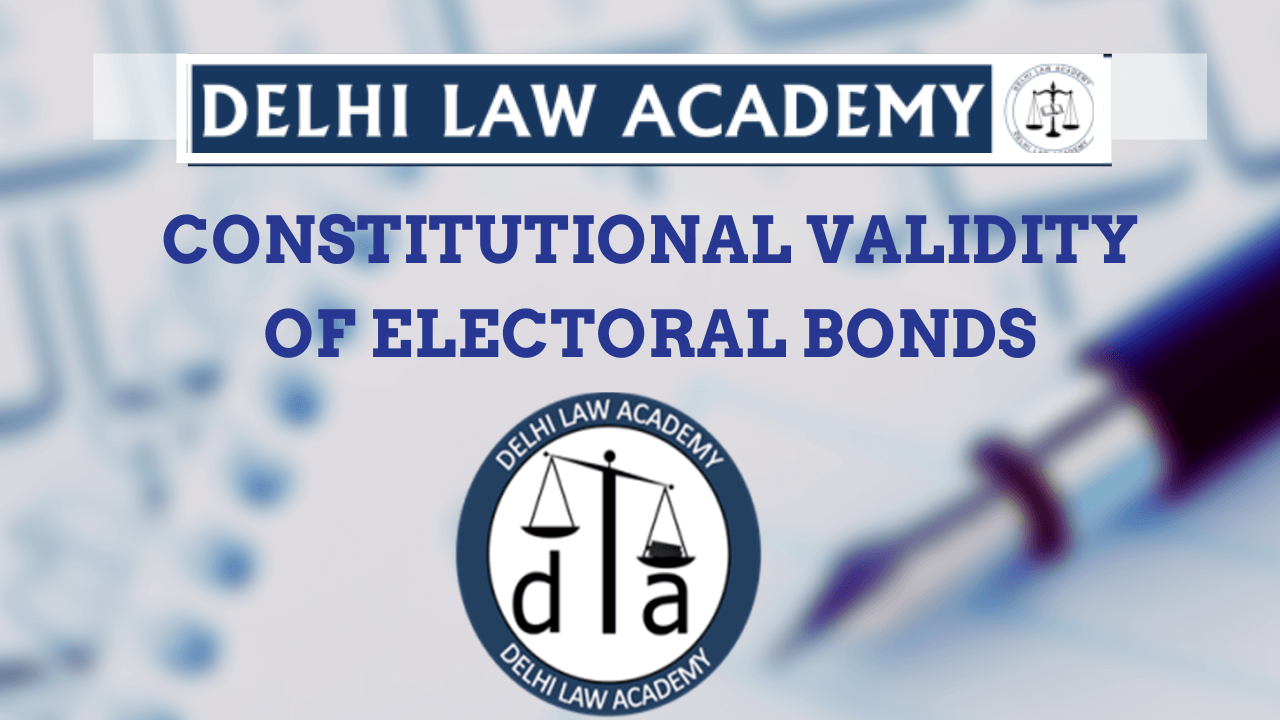
Constitutional validity of the Electoral Bond Scheme
The Electoral Bond Scheme introduced anonymous financial contributions to political parties.
The Finance Act 2017 amended the Reserve Bank of India Act 1934, the Representation of the People Act 1951, the Income Tax Act 1961 and the Companies Act 2013. The effect of these amendments was that:
- A new scheme for financial contribution to political parties was introduced in the form of electoral bonds;
- The political parties were not required to disclose the contributions received through electoral bonds;
- Companies were not required to disclose the details of contributions made in any form; and
- Unlimited corporate funding was permissible.
A 5-Judge Constitution Bench of the Supreme Court considered the Constitutional validity of the Electoral Bond Scheme in Association for Democratic Reforms v. Union of India.
Through its judgment dated February 15, 2024, the Court declared the Electoral Bond Scheme unconstitutional on the ground that this Scheme violated Article 19(1)(a) of our Constitution.
The Court directed the disclosure of information on contributions received by political parties under the Electoral Bond Scheme to give logical and complete effect to its ruling.
Supreme Court ruling in Association for Democratic Reforms v. UoI
This is what the Court ruled:
- The Electoral Bond Scheme, the proviso to Section 29C(1) of the Representation of the People Act 1951 (as amended by Finance Act 2017), Section 182(3) of the Companies Act (as amended by Finance Act 2017), and Section 13A(b) (as amended by Finance Act 2017) are violative of Article 19(1)(a) and unconstitutional; and
- The deletion of the proviso to Section 182(1) of the Companies Act permitting unlimited corporate contributions to political parties is arbitrary and violative of Article 14.
Directions issued by the Supreme Court on February 15, 2024 through its final order:
- The issuing bank shall herewith stop the issuance of Electoral Bonds;
- SBI shall submit details of the Electoral Bonds purchased since the interim order of this Court dated 12 April 2019 till date to the ECI. The details shall include the date of purchase of each Electoral Bond, the name of the purchaser of the bond and the denomination of the Electoral Bond purchased;
- SBI shall submit the details of political parties which have received contributions through Electoral Bonds since the interim order of this Court dated 12 April 2019 till date to the ECI. SBI must disclose details of each Electoral Bond encashed by political parties which shall include the date of encashment and the denomination of the Electoral Bond;
- SBI shall submit the above information to the ECI within three weeks from the date of this judgment, that is, by 6 March 2024;
- The ECI shall publish the information shared by the SBI on its official website within one week of the receipt of the information, that is, by 13 March 2024; and
- Electoral Bonds which are within the validity period of fifteen days but that which have not been encashed by the political party yet shall be returned by the political party or the purchaser depending on who is in possession of the bond to the issuing bank. The issuing bank, upon the return of the valid bond, shall refund the amount to the purchaser’s account.
Earlier directions: Issued by the Court on 12 April 2019 through its interim order:
- Information of donations received and donations which will be received must be submitted by political parties to the ECI in a sealed cover.
- political parties shall submit detailed particulars of the donors as against each Bond, the amount of each bond and the full particulars of the credit received against each bond, namely, the particulars of the bank account to which the amount has been credited and the date on which each such credit was made.
Preparing for Judicial Services Exam?
Delhi Law Academy offers complete study material and notes for Judicial Services Exam Preparation
Click Here to find out more
